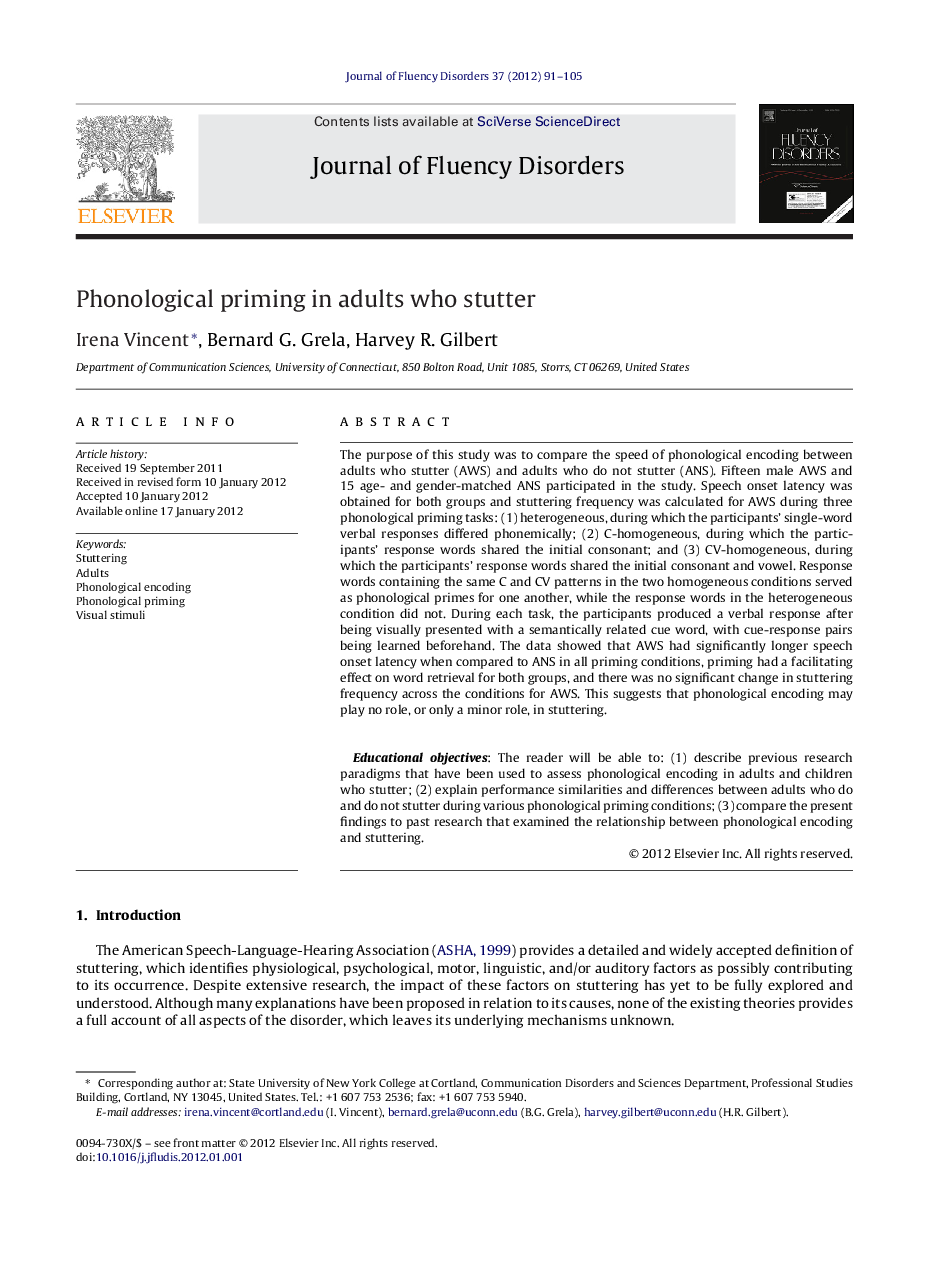| کد مقاله | کد نشریه | سال انتشار | مقاله انگلیسی | نسخه تمام متن |
|---|---|---|---|---|
| 911470 | 917926 | 2012 | 15 صفحه PDF | دانلود رایگان |

The purpose of this study was to compare the speed of phonological encoding between adults who stutter (AWS) and adults who do not stutter (ANS). Fifteen male AWS and 15 age- and gender-matched ANS participated in the study. Speech onset latency was obtained for both groups and stuttering frequency was calculated for AWS during three phonological priming tasks: (1) heterogeneous, during which the participants’ single-word verbal responses differed phonemically; (2) C-homogeneous, during which the participants’ response words shared the initial consonant; and (3) CV-homogeneous, during which the participants’ response words shared the initial consonant and vowel. Response words containing the same C and CV patterns in the two homogeneous conditions served as phonological primes for one another, while the response words in the heterogeneous condition did not. During each task, the participants produced a verbal response after being visually presented with a semantically related cue word, with cue-response pairs being learned beforehand. The data showed that AWS had significantly longer speech onset latency when compared to ANS in all priming conditions, priming had a facilitating effect on word retrieval for both groups, and there was no significant change in stuttering frequency across the conditions for AWS. This suggests that phonological encoding may play no role, or only a minor role, in stuttering.Educational objectives: The reader will be able to: (1) describe previous research paradigms that have been used to assess phonological encoding in adults and children who stutter; (2) explain performance similarities and differences between adults who do and do not stutter during various phonological priming conditions; (3) compare the present findings to past research that examined the relationship between phonological encoding and stuttering.
► Phonological priming was used to examine phonological encoding in adults who stutter.
► Adults who stutter responded more slowly under all priming conditions.
► The priming effect was the same for adults who do and do not stutter.
► Stuttering frequency did not change under different priming conditions.
► There was no evidence of a phonological encoding deficit in adults who stutter.
Journal: Journal of Fluency Disorders - Volume 37, Issue 2, June 2012, Pages 91–105